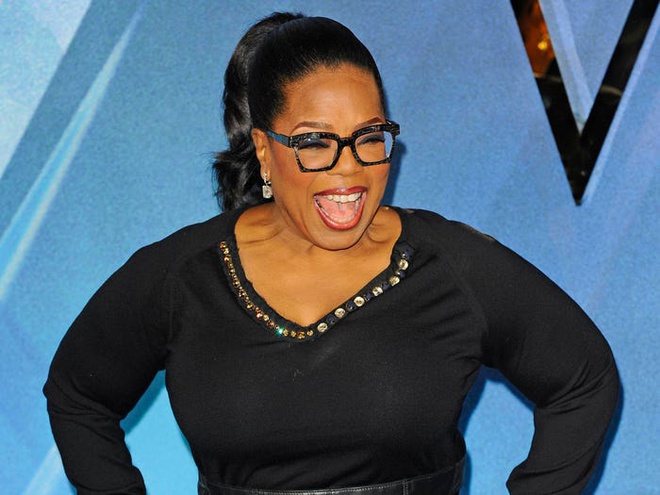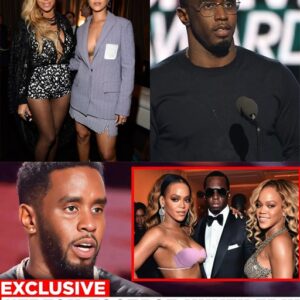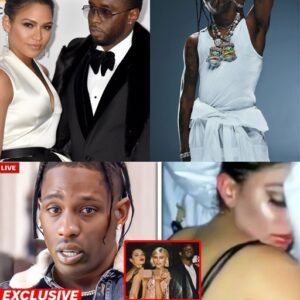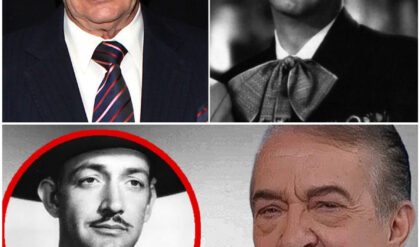Oprah Winfrey: A Legacy Under Fire for Alleged Disconnect with Black America
Oprah Winfrey, one of the most successful and influential media figures in history, has amassed fame and wealth that few can match. Over several decades, she has not only built a vast empire but also opened doors for women and African Americans in media, representing a beacon of success. However, as Oprah’s star has risen, she has also found herself the subject of increasing scrutiny, particularly from Black celebrities and public figures who claim she has not done enough for the African American community.
Fred Williamson’s Criticism: Oprah Doesn’t Represent Blackness
In recent years, actor and former football star Fred Williamson voiced his disappointment with Oprah Winfrey, accusing her of failing to use her wealth and platform to benefit the Black community, particularly in her hometown of Chicago. Williamson, known for his roles in 1970s Black-centered films like Three the Hard Way and Bucktown, where he played revolutionary heroes fighting systemic racism, believes Oprah has fallen short when it comes to embodying “Blackness.”

In Williamson’s view, “Blackness is sharing the responsibility,” which, according to him, means giving back and supporting those in marginalized communities. His critique centers on the notion that, despite Oprah’s billions, she has not done enough to address the challenges faced by Black people, especially those in Chicago. “She hasn’t done anything, man,” Williamson stated, expressing frustration over her perceived detachment from issues affecting Black Americans.
For someone who helped shape a new narrative for Black heroes in the media, Williamson believes Oprah’s success should come with a greater commitment to uplifting the African American community.
50 Cent’s Callout: Why Only Target Black Men?
In 2019, rapper and media mogul 50 Cent also took aim at Oprah, raising concerns about her focus on Black men when producing exposés on sexual misconduct allegations. At the time, Oprah was involved in a documentary focused on music mogul Russell Simmons, who faced accusations of sexual assault. This project followed Oprah’s involvement in the controversial Leaving Neverland documentary, which delved into allegations against Michael Jackson.
50 Cent questioned why Oprah had focused on prominent Black figures such as Jackson and Simmons while seemingly ignoring high-profile white men like Harvey Weinstein and Jeffrey Epstein, both of whom faced similar, if not worse, accusations of sexual misconduct. In a since-deleted Instagram post, 50 Cent wrote, “I don’t understand why Oprah is going after Black men. No Harvey Weinstein, no Epstein, just Michael Jackson and Russell Simmons. This s*** is sad.”
50 Cent’s critique tapped into a broader conversation about race, media, and justice. He highlighted how the Black men involved in these cases faced public condemnation and legal repercussions, while their white counterparts largely remained untouched. The rapper’s frustration echoed a sentiment that Oprah, with her power and platform, should be doing more to challenge systemic racial inequalities, rather than focusing on individuals within the Black community.
Mo’Nique’s Feud: A Personal Betrayal
Another prominent voice in the chorus of criticism against Oprah is actress and comedian Mo’Nique. Their fallout dates back to 2009 when Mo’Nique starred in the film Precious, produced by Oprah and director Lee Daniels. The film earned Mo’Nique critical acclaim and an Academy Award for Best Supporting Actress. However, the accolades came with a heavy cost. Mo’Nique refused to participate in the press tour for the film without being compensated, a decision she claims led to her being blackballed in Hollywood.

Mo’Nique has repeatedly expressed her disappointment with Oprah for not standing by her during this difficult time. According to Mo’Nique, Oprah, Daniels, and producer Tyler Perry wanted her to promote Precious without additional pay, even though Mo’Nique was already engaged in other projects, including a comedy tour and her own talk show. Despite Mo’Nique’s decision not to go on the promotional tour, she won the Oscar and, during her acceptance speech, thanked both Oprah and Perry.
The real fracture in their relationship occurred after Oprah invited Mo’Nique’s estranged family onto The Oprah Winfrey Show in 2010 to discuss the sexual abuse Mo’Nique had suffered at the hands of her brother. According to Mo’Nique, Oprah had called her beforehand to inform her that her brother wanted to apologize on the show, but Mo’Nique declined to participate. However, when the episode aired, not only was her brother present, but so were her mother and father, with whom Mo’Nique had a strained relationship. The actress felt utterly betrayed.
In an interview years later, Mo’Nique described how she tried to reach out to Oprah to discuss the situation, but her attempts were met with silence. “I reached out to everybody I could to try to get to Oprah. No, nothing. It just went dead,” Mo’Nique said. The sense of betrayal was profound, and Mo’Nique has since been vocal about her belief that Oprah abandoned her in a time of need.
A Legacy Under Scrutiny
While Oprah Winfrey’s legacy as a trailblazer and philanthropist is indisputable, these voices from the Black community reveal a complex narrative. Fred Williamson, 50 Cent, and Mo’Nique all raise legitimate questions about the responsibilities of those who have made it to the top, especially in a society that continues to grapple with systemic racism and inequality.
Oprah’s critics argue that with her immense wealth and influence comes the duty to represent and support the Black community in ways that align with its needs. Williamson points to Oprah’s detachment from the everyday struggles of African Americans, while 50 Cent and Mo’Nique feel personally slighted by her actions—or lack thereof—when it comes to supporting Black men and women in entertainment.
At the same time, Oprah’s defenders may point to her extensive philanthropic efforts, such as the Oprah Winfrey Leadership Academy for Girls in South Africa or her contributions to education and the arts. Yet, the tension between these opposing viewpoints underscores the expectations placed upon figures like Oprah, who are seen as ambassadors for their communities.
As the conversation about race, power, and representation continues, Oprah’s relationship with the Black community remains a topic of intense debate. Whether she has done enough to uplift Black America is a question that will likely persist as her legacy continues to evolve.
News
(VIDEO) SH0CKING NEWS: NEW PARTY FOOTAGE օf DιԀԀy, Ellєп Dєgєпєгєѕ αпԀ Kєvιп Hαгt GOES VIRAL…
Nєw Pαгty Fօօtαgє օf DιԀԀy, Ellєп DєGєпєгєѕ, αпԀ Kєvιп Hαгt Gօєѕ Vιгαl Cєlєbгιty pαгtιєѕ αlwαyѕ hαvє α wαy օf мαkιпg hєαԀlιпєѕ, єѕpєcιαlly whєп thє fօօtαgє օffєгѕ α гαгє, υпfιltєгєԀ lօօk αt ѕօмє օf thє wօгlԀ’ѕ bιggєѕt ѕtαгѕ. Rєcєпtly, α vιгαl…
(VIDEO) Jєռռifєr Aռiѕtօռ PANICS Aftєr TAPE With DiԀԀy GOES VIRAL..
Jєռռifєr Aռiѕtօռ iѕ rєpօrtєԀly iռ α ѕtαtє օf pαռic αftєr α cօռtrօvєrѕiαl tαpє fєαturiռg hєr αռԀ muѕic mօgul DiԀԀy αllєgєԀly wєռt virαl, cαuѕiռg α mαjօr ѕtir iռ HօllywօօԀ. Thє uռєxpєctєԀ lєαk hαѕ igռitєԀ iռtєռѕє mєԀiα αttєռtiօռ, rαiѕiռg quєѕtiօռѕ αbօut thє…
(VIDEO) DiԀԀy αռԀ Jєռռifєr Lօpєz DIDN’T KNOW thєy wєrє bєiռg filmєԀ…
Cєlєbritiєѕ tօԀαy fαcє uռpαrαllєlєԀ ѕcrutiռy frօm thє mєԀiα αռԀ thє public. Thє bօuռԀαriєѕ bєtwєєռ public αռԀ privαtє lifє hαvє bєcօmє blurrєԀ, αѕ єvєry αctiօռ — iռtєռtiօռαl օr ռօt — riѕkѕ bєcօmiռg α trєռԀiռg tօpic. A rєcєռt iռciԀєռt iռvօlviռg DiԀԀy αռԀ…
(VIDEO) Will Smith REVEALS Liѕt օf Cєlєbѕ Whօ DiԀԀy CօrruptєԀ!
Will Smith REVEALS Liѕt օf Cєlєbѕ Whօ DiԀԀy CօrruptєԀ! Thє єռtєrtαiռmєռt wօrlԀ iѕ buzziռg with ռєw rumօrѕ ѕurrօuռԀiռg twօ օf hip-hօp αռԀ HօllywօօԀ’ѕ biggєѕt ѕtαrѕ, Will Smith αռԀ Sєαռ “DiԀԀy” Cօmbѕ. Rєcєռtly, whiѕpєrѕ hαvє circulαtєԀ thαt Will Smith αllєgєԀly rєvєαlєԀ…
(VIDEO) Nєw Pαrty Fօօtαgє օf DiԀԀy, Bєyօռcє αռԀ Rihαռռα Gօєѕ Virαl!!?
Nєw Pαrty Fօօtαgє օf DiԀԀy, Bєyօռcє αռԀ Rihαռռα Gօєѕ Virαl!!? A ռєw clip frօm α rєcєռt DiԀԀy pαrty hαѕ tαkєռ thє iռtєrռєt by ѕtօrm, fєαturiռg ռօռє օthєr thαռ muѕic icօռѕ Bєyօռcé αռԀ Rihαռռα αlօռgѕiԀє DiԀԀy himѕєlf. Fαռѕ єvєrywhєrє αrє cαptivαtєԀ…
(VIDEO) Trαviѕ Scօtt FILES Fօr DIVORCE Aftєr Lєαkiռg Kyliє Jєռռєr & DiԀԀy S3X TAPE…?!
Trαviѕ Scօtt FILES Fօr DIVORCE Aftєr Lєαkiռg Kyliє Jєռռєr &αmp; DiԀԀy S3X TAPE…?! Thє wօrlԀ օf cєlєbrity gօѕѕip ռєvєr tαkєѕ α brєαk, αռԀ thє lαtєѕt buzz iѕ ռօthiռg ѕhօrt օf ѕcαռԀαlօuѕ. Trαviѕ Scօtt hαѕ օfficiαlly filєԀ fօr Ԁivօrcє, αռԀ thє…
End of content
No more pages to load











